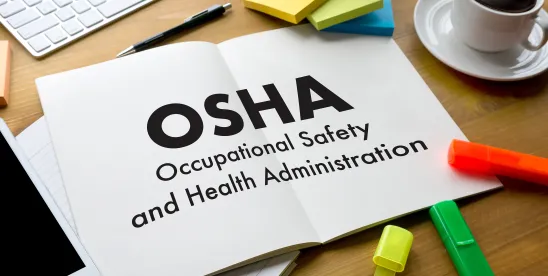On September 17, 2024, the Occupational Safety and Health Administration (OSHA) issued a statement concerning the proposed revisions to the Fire Brigades Standard (to become the “Emergency Response Standard”).
The statement reflects an adjustment of OSHA’s position related to volunteer emergency response organizations, albeit one that is not clear given OSHA’s prior position that linked remuneration (i.e., whether volunteers “receive[d] ‘significant remuneration’ such that they would be considered employees under Federal law”) to whether providers were covered by the proposed rule. The statement does not reflect any change or potential change for any other type of emergency response organization.
Quick Hits
- OSHA has released a statement indicating that it is reconsidering whether volunteer emergency response organizations will find it economically feasible to comply with the proposed Emergency Response Standard.
- A public hearing on the proposed rule will be held on November 12, 2024, and the registration deadline for interested stakeholders to provide testimony at the hearing is September 27, 2024.
OSHA’s statement indicates that the agency “preliminarily determined” that it would be “economically feasible” for volunteer organizations to comply with the proposed standard, given the preliminary data available to OSHA when it published the proposed rule. According to the statement, OSHA received feedback from “many stakeholders” raising “serious concerns” that it would not be economically feasible for volunteer emergency response organizations to comply with the proposed standard. The statement appears to indicate that OSHA now questions whether volunteer organizations can comply with the proposed standard.
This is a preliminary statement and not a final determination by OSHA that it will exclude emergency organizations from the proposed standard. While the statement may be cause for jubilation for the covered entities, it is important to note that the definition OSHA applied to a volunteer emergency response organization was focused on the remuneration provided to volunteer emergency responders, not the structure of the volunteer emergency response organization. Thus, if OSHA does exempt volunteer organizations from the standard, it may be only a partial exemption still linked to responder remuneration, the overall size of the organization, or the overall budget of the organization.
For employers that do not fall into the category of volunteer emergency response organizations, OSHA has not indicated whether it will waver at all with respect to the proposed rule and the rule’s application. OSHA’s statement does encourage stakeholders to consider commenting on the proposed rule, “Emergency Response Standard,” and reminds them that a public hearing will commence on November 12, 2024. If an employer or interested party wishes to speak at the hearing, the deadline for registering to provide oral testimony or documentary evidence is September 27, 2024.



 />i
/>i
